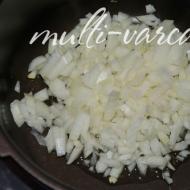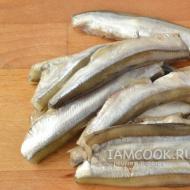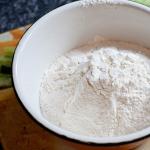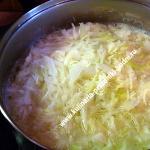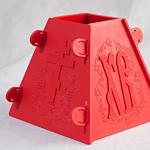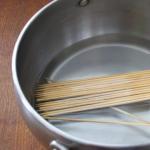
How to take St. John's wort. Useful properties and contraindications of herbal tea from St. John's wort. Let's take a closer look at St. John's wort tea, its benefits and harms.
24Dear readers, today we will continue our conversation with you about the herb St. John's wort. We met you with, I told you about how to distinguish St. John's wort, which has healing powers, from other types of St. John's wort. Today we will talk about the use and treatment of St. John's wort, and I will also share recipes based on this unique herb.
St. John's wort is used in many countries to treat various diseases; its anti-inflammatory, antiseptic, analgesic, astringent and sedative and some other properties are used very widely in the form of decoctions, infusions, alcohol extracts, compresses, ointments and oils.
Herb St. John's wort. Application
Perhaps there is no other herb whose range of medicinal properties would be so wide. Here are the main problems for which treatment with St. John's wort has a positive effect:
- liver and gallbladder diseases;
- diseases of the stomach and intestines;
- haemorrhoids;
- cystitis;
- urolithiasis disease;
- varicose veins;
- atherosclerosis;
- oral diseases;
- burns;
- bedsores;
- infectious skin lesions;
- headache;
- nervous disorders;
- joint pain;
- diarrhea;
- depression.

Infusion of St. John's wort herb. Recipe
Infusion recipe . To prepare an infusion of St. John's wort, you will need two tablespoons of chopped fresh herbs or one tablespoon of dry herbs. Pour a glass of boiling water over the herb, let it sit under the lid for an hour or two, after which the infusion is ready for use. We filter it and take a tablespoon before meals for gastritis, colitis, cystitis, and headaches.
The same infusion can be used to gargle with sore throat, tonsillitis, pharyngitis, as well as in the mouth for problems with gums. For inflammatory skin diseases, the infusion is used as a lotion and rinse.
Decoction of St. John's wort herb. Recipe
A decoction differs from an infusion in that it is prepared using a steam bath, so it is more concentrated. For the decoction, you need to take a tablespoon of St. John's wort and a glass of hot boiled water, heat in a water bath for 20-30 minutes, cool and strain.
The decoction is used in the same way as the infusion; it is used internally for gastritis, indigestion, and intestinal infections. Externally, the decoction is used to wipe the skin, for lotions and baths.
St. John's wort tea
During the cold season, a good preventive remedy is tea with the addition of St. John's wort.
St. John's wort tea recipe very simple. To prepare it, put any black or green tea in a teapot in your usual proportions and add a teaspoon of St. John's wort herb. It is very good to add linden blossom, dried raspberries or strawberries, a currant leaf or a few rose hips to this tea, you can add honey or a slice of lemon.
What are the benefits of St. John's wort tea? This tea is incredibly tasty, it helps cope with colds, strengthens the immune system, improves sleep and mood.

St. John's wort tincture
St. John's wort tincture recipe . You can prepare an alcohol tincture from St. John's wort herb, for which you need to take 3 tablespoons of crushed dry herb for 250 grams of 70% alcohol. Alcohol can be replaced with high-quality vodka. Keep the tincture in a dark place for at least 14 days, then filter it and store it in the refrigerator. If you wish, you can buy St. John's wort tincture at the pharmacy.
This tincture is used for compresses for joint pain and for rubbing for muscle pain. To rinse the mouth, a teaspoon of St. John's wort tincture is diluted in half a glass of boiled water.
St. John's wort oil. Recipe. Application
There are several ways to prepare St. John's wort oil, I will describe the simplest method that allows you to prepare St. John's wort oil yourself
Recipe for making St. John's wort oil at home
To prepare it, you will need fresh St. John's wort (tops only) and olive or linseed oil. St. John's wort is placed in a glass jar, but not compacted, and filled to the top with oil. Infuse for four weeks in the light in a warm place, then filter, and squeeze out the raw materials. The oil should have a rich ruby color. If it is not possible to prepare the oil yourself, you can buy it at the pharmacy.
St. John's wort oil. Application
This oil is used to treat bedsores, burns, purulent and ulcerative skin lesions, wounds and bruises. The oil is effective for sore throats, inflammation of the gums and oral mucosa, and for the treatment of sinusitis.
St. John's wort oil is also used internally for diseases of the liver and gall bladder, stomach and intestines. The oil relieves spasms, soothes pain, has an anti-inflammatory and mild diuretic effect. In this case, it is better to simply add it to a vegetable dish. In its pure form, St. John's wort oil can cause nausea.
St. John's wort oil is also used in cosmetology; it is especially suitable for problematic skin prone to acne. The oil cleanses the skin well, disinfects, and tightens pores.
This oil is also very good for strengthening our hair and for those who have problems with dandruff. You need to rub this oil into dry hair, cover with plastic, put on a cap or wrap your head with a towel, keep it for at least an hour, then rinse your hair thoroughly with regular shampoo. It is best to complete a course of such procedures. 2-3 times a week for a month, or even more.
St. John's wort oil. Contraindications
St. John's wort oil is contraindicated for children and in the following cases:
- if you are in the sun for a long time;
- at high air temperatures;
- for hypertension;
- at elevated body temperature;
- during pregnancy.
I suggest watching a video on how to prepare tea and oil from St. John's wort at home.
Treatment with St. John's wort. Recipes
- For depression, nervous disorders, sleep disorders a good effect can be achieved by taking 10-15 drops of alcoholic tincture of St. John's wort with a small amount of water. Take the tincture before meals three times a day for 3 to 4 weeks.
- For chronic hepatitis, liver cirrhosis It is recommended to take 10 drops of tincture three times a day for a month, then drink tea with the addition of St. John's wort twice a day for another three weeks.
- For cholecystitis For a week, take a decoction of St. John's wort, 1-2 tablespoons 3-4 times a day after meals.
- In case of lack of appetite tea with St. John's wort will help, which you need to drink in the morning for a week.
- For hypertension, varicose veins Take three times a day before meals, a tablespoon of decoction of St. John's wort herb. To prevent cardiovascular diseases, drinking tea with the addition of St. John's wort every day, half a glass is enough.
- For colds, headaches take St. John's wort infusion 1/4 cup twice a day after meals.
- For the treatment of dysbiosis . St. John's wort tincture helps with this very well, especially if dysbiosis is in the initial stage. A few drops of St. John's wort tincture are added to the tea and you should drink this tea 3 times a day.
- For a runny nose, for sinusitis Rinsing the sinuses with St. John's wort infusion helps a lot. Before the procedure, warm up the infusion a little so that it is warm, and draw it into a small syringe or syringe without a needle. Many people are afraid to carry out such rinsing, but, as a rule, everything works out very easily, you just need to tilt your head over the sink and a little to the side. Pour the infusion into the nasal passage in small portions. Some of the liquid will enter the nasopharynx and must be spit out immediately, and some will pour out from the other nostril. Such rinses are very useful; if you do them regularly, you can forget about a runny nose forever. Also, for sinusitis, St. John's wort oil is instilled into the nose.
- For stomatitis and gingivitis rinse your mouth with St. John's wort tincture, diluting 30 - 40 drops in half a glass of water.
- For sore throat use a warm decoction of St. John's wort herb for rinsing for at least a week until relief occurs. Such treatment must be carried out in combination with medications and procedures prescribed by a doctor.
- For pain in muscles and joints St. John's wort oil is used, it is heated, soaked in a cotton cloth or gauze napkin and applied to the sore spot, covered with wax paper on top and wrapped.
- For diseases of the spine St. John's wort oil is used as a massage oil; it is used heated and rubbed into the muscles during a massage session.
- For the treatment of vitiligo St. John's wort oil is used, take a tablespoon three times a day for three weeks, then take a break for a week and repeat the course. The number of courses depends on the severity of the skin lesion. Simultaneously with ingestion, vitiligo spots are lubricated with St. John's wort oil or bandages are applied for 30 minutes once a day.

Stomach treatment. Recipes containing St. John's wort
I want to talk in more detail about treating the stomach with the herb St. John's wort. This is a very common problem, and every second resident of large cities suffers from gastritis or stomach ulcers. When treating gastritis, stomach and duodenal ulcers, it is better to use herbal preparations that include St. John's wort.
- During exacerbation gastritis with low acidity mix St. John's wort, peppermint, yarrow herb and chamomile flowers in equal quantities. Brew a tablespoon of the collection with a glass of boiling water, leave for 30-40 minutes, strain and take 1-2 tablespoons 3-4 times a day 20 minutes before meals.
- With increased acidity mix two tablespoons of St. John's wort and plantain leaves, add one spoon each of peppermint leaves, knotweed grass, yarrow herb, calamus rhizomes and a teaspoon of cumin fruits. Brew a tablespoon of the mixture with 1.5 cups of boiling water, leave in a sealed container for 4-5 hours, strain and take 1/4 cup three times a day 30 minutes after meals.
- For chronic gastroduodenitis mix 3 tablespoons of St. John's wort, two tablespoons of flax seed, one spoon each of peppermint leaves, black currant and plantain. Pour two tablespoons of the mixture into 1/2 liter of boiling water and leave in a thermos for 6 hours. Strain and take 1/3 cup three times a day before meals.
- For heartburn and belching I suggest the following collection: 2 tablespoons each of St. John's wort and flax seeds, one tablespoon each of rose hips and hawthorn, one teaspoon each of sage herb and nettle leaves. Grind the fruits and mix all ingredients. Pour two tablespoons of the mixture into two glasses of boiling water and leave in a thermos for 5 - 6 hours. Take 1/4 - 1/3 cup.
- For erosive and ulcerative lesions of the stomach and duodenum St. John's wort oil is recommended, it is taken with a small amount of boiled vegetables or with a piece of bread, starting with 1/2 teaspoon 2 times a day between main meals, increasing after some time to one tablespoon twice a day. Keep in mind that St. John's wort oil has a specific taste and smell, so before you start treatment, try it just a little to see how you tolerate it.
I suggest watching another video about the use of St. John's wort. Phytotherapist Valery Baburin talks about him very interestingly.
St. John's wort. Contraindications
People sensitive to sunlight should take preparations based on St. John's wort very carefully, and exposure to the sun is strictly prohibited. They should not be taken together with antibiotics, antidepressants, birth control pills and drugs that suppress the immune system during organ transplantation.
St. John's wort should not be used by children under 12 years of age, pregnant and lactating women, as well as those suffering from hypertension and internal bleeding.
These are the tips and recipes for using St. John's wort for our health for today. I hope that the information was interesting and useful for you.
And for the soul, we will listen today poems by Eduard Asadov. Winter's Tale And the music of Secret Garden sounds. I was very touched by this video. And the poems are wonderful, and the music again... I hope that you will enjoy listening to everything.
I wish you all good health, use simple recipes that nature gives us. Simple joys in every family, harmony, comfort and warmth.
see also






24 comments
Yasmin
21 Feb 2018 at 0:24
Answer
Answer
Answer
Andrey Kotov
29 Mar 2016 at 10:23
Answer
Answer
Answer
Answer
Answer
Answer
Answer
St. John's wort also goes by other names. It is popularly called youth blood, red grass, blood grass and healthy grass. There is a fabulous legend about the origin of this plant, which tells that St. John's wort grew from the blood of a magical bird. There was a battle in the sky, and the bird was seriously injured by an evil monster. She descended to the ground, and St. John's wort grew from droplets of blood and lost feathers.
The Catholic Church attributes the appearance of St. John's wort to the blood of John the Baptist. After the executioner cut off his head, the falling drops of blood gave birth to St. John's wort.

Appearance
St. John's wort is a low perennial subshrub. Belongs to the St. John's wort family. The stem of St. John's wort has four sides. Leaves with short petioles are located opposite each other. You can see small black gland dots on them.
Yellow and rather large flowers, each having five sepals and petals, are collected in inflorescences and are located mainly in the upper part of the plant. The center of the flower is the abundance of stamens. The flowers do not have a brightly saturated yellow color, they have a brownish tint. The flowering period lasts from June to August.
The fruit of St. John's wort is a triangular capsule, which, after ripening, opens into nests. There can be from 3 to 5. Small seeds shaped like an oval fall out from there. The seeds ripen in late summer early autumn.
St. John's wort root is branched.



Kinds
There are approximately 110 species of this plant. The most common:
- The stem of this species is dihedral. The name speaks for itself. Black glands located on bright green leaves create the feeling that the leaf is full of holes.
- Unlike the previous species, it has a smooth stem. It is not for nothing that it is called large, since its height is more than a meter. Accordingly, its flowers are very large in size. They are collected in inflorescences of 3-5 pieces. St. John's wort is classified as an ornamental plant.
- The height of this species reaches 50 cm. The leaves are also equipped with glands. There are many flowers. They are whitish-yellow. Flowering period May-July.
- The height of mountain St. John's wort is from 20 to 60 cm. The stem is cylindrical in cross section. The leaves, which are located in the upper part of the plant, are equipped with glands.
- It can be either 10 cm in height or 70. There are quite a lot of stems and they are covered with oval leaves with a few glands. The flowers form a paniculate inflorescence. The flowering period lasts until September.
- The stem of this type of St. John's wort is purple. In the upper part the stem gives off many branches. The flowers are light yellow.
- It is very similar to the perforated one, but its stem has 4 longitudinal edges, and not two, like the perforated one.
- The height of this species reaches 40 cm. The stem has a brown or reddish color and is covered with small glandular growths.








Where does it grow?

When is it collected and how is it dried?
St. John's wort is collected during its flowering period by simply cutting off the stems with flowers. The root is not used. Moreover, when collecting raw materials, make sure that the root remains in place. Then next year the plant will again delight you with its flowers and medicinal properties.
 According to popular beliefs, St. John's wort, collected on the night of Ivan Kupala, has special magical and healing powers.
According to popular beliefs, St. John's wort, collected on the night of Ivan Kupala, has special magical and healing powers.
During the drying process of St. John's wort, good ventilation of the room is necessary. St. John's wort should be spread in the shade on paper or on a wire mesh. The layer of plants should not exceed 7 cm. The raw materials must be mixed. You can dry St. John's wort in bunches, hanging them, for example, in the attic. If the St. John's wort stems break with a crunch, then the drying process is complete. Bags are suitable for storing finished dry raw materials. Beneficial properties last for 3 years.

Peculiarities
The entire above-ground part of the plant, its stems, leaves and flowers is used.

Characteristics
Does not have any distinct odor. The taste is bitter, a little astringent.

Calorie content and chemical composition
100 grams of dry St. John's wort contains 10 kcal. The following flavone compounds were found in the herb St. John's wort:
- glycoside;
- hyperoside;
- routine;
- quercitrin;
- isoquercitrin.
The chemical composition of St. John's wort also includes:
- essential oil;
- tannins;
- anthocyanins;
- saponins;
- carotene;
- acids (nicotinic, ascorbic);
- vitamin P;
- ceryl alcohol;
- choline;
- trace elements (Mg, Zn).
You can learn more about the beneficial properties of St. John's wort from the following video:
Beneficial features
- Shows antispasmodic properties.
- Relieves inflammation.
- Stops bleeding.
- Disinfects.
- St. John's wort has choleretic properties.
- Strengthens the immune system.
- Improves the body's regenerative ability.
- Is a sedative.
 You can easily find dried St. John's wort in any pharmacy.
You can easily find dried St. John's wort in any pharmacy.
Harm
Despite the fact that St. John's wort brings great benefits to our body, we should not forget about its name, which speaks for itself:
- The use of this plant has a negative effect on the body of a pregnant woman, or more precisely, on the fetus. Consumption of St. John's wort can provoke early labor or cause mental retardation in the newborn baby.
- If a nursing woman consumes St. John's wort, her milk begins to taste bitter.
- St. John's wort increases blood pressure.
- St. John's wort contains toxic substances, so abuse is fraught with consequences: allergies and poisoning.
- Negatively affects male potency. If corresponding problems arise, men should immediately stop using St. John's wort.
- St. John's wort-containing preparations of strong concentration (infusions, decoctions) can harm the body.
- Under the influence of St. John's wort, the body becomes extremely susceptible to ultraviolet radiation. Therefore, its use should be limited on sunny days.
- St. John's wort weakens the effect of contraception, drugs that treat diseases of the cardiovascular system, and antibiotics.
- Completely neutralizes the therapeutic effect of drugs used to treat HIV.
Contraindications
- Pregnancy and lactation.
- Hypertension.
- Hypersensitivity to ultraviolet rays.
- HIV infection.
- Children's age up to 12 years.
 St. John's wort is slightly toxic and can cause an allergic reaction
St. John's wort is slightly toxic and can cause an allergic reaction
Oil
- Recipe 1. To prepare St. John's wort oil, you will need fresh crushed flowers and leaves of the plant (25 g), which need to be filled with vegetable oil (250 g). Olive, sunflower or flax oil will do. The oil is infused for about 3 weeks in a warm place. It needs to be shaken periodically. After the allotted time, strain the oil and pour it into a dark glass bottle in which it should be stored.
- Recipe 2. Take 0.5 kg of fresh raw materials and fill them with a liter of olive oil and half a liter of white wine. The mixed ingredients are left for three days, and then everything is put on fire to evaporate the wine.
St. John's wort oil is used in the treatment of various burns (including sunburn), dermatitis and eczema, and wounds. It is used in compresses, for example, for lumbago. Heated, but not boiled, oil is applied to the cotton wool. Next, cotton wool should be applied to the affected area and wrapped well with a towel.

Tea
St. John's wort tea is especially useful if you use a glass or porcelain teapot to prepare it. It should be rinsed with boiling water and only then begin the brewing process itself. For 250 ml of boiling water you will need 1-2 teaspoons of herbal mixtures. After 10 minutes of infusion, the tea is ready to drink.
St. John's wort goes well with various herbs. Here are a few recipes for such mixtures:
- Recipe 1. Take two parts of oregano and one part each of St. John's wort and dry rose hips. This tea is infused for 30 minutes. This time is necessary for rose hips.
- Recipe 2. Mix St. John's wort and black currant leaf in equal parts. Brewed in the usual way. It turns out to be a very aromatic and healthy drink.
- Recipe 3. Cranberry and St. John's wort tea. This is a necessary drink in the treatment of colds. It is noteworthy that decoctions of cranberries and St. John's wort are made separately from each other and then mixed. It is recommended to brew them in the evening to make the infusion especially beneficial. In the morning, the decoctions are mixed and sweetened to taste with sugar.


St. John's wort tea is recommended for weather-sensitive people. It helps the body cope with natural fluctuations. A mixture of lemon balm, hawthorn and St. John's wort is useful for older people. In essence, you will not feel a special taste and aroma in St. John's wort tea, which cannot be said, of course, about its medicinal manifestations.

Tincture
- Alcohol tincture of St. John's wort is a remedy that relieves inflammation.
- She is being treated for a sore throat.
- Treat wounds and cuts.
To prepare an alcoholic St. John's wort tincture, take dry crushed raw materials and vodka at a ratio of 1:5. A dark place is suitable for infusion. A week later the medicine is ready. It is consumed three times a day. Single dose – 40 drops.

Decoction
St. John's wort infusion, like many other herbal infusions, is prepared in a water bath. To do this, pour 100 ml of water into the pan and pour in 10 g of dry raw materials. This mixture is placed in another container with a small amount of water. The broth needs to be heated in a water bath for half an hour. You can't let it boil. After this, everything should be removed from the heat, cooled and strained. The resulting liquid is added with boiled water to make 200 ml.
Before taking the resulting medicine, it must be shaken.

Extract
- St. John's wort extract is primarily an antidepressant with calming properties.
- Beneficial for the nervous system.
- Eliminates anxiety during sleep.
- It has a positive effect on the performance of the body.
- Recommended for pain caused by burns and injuries.
While using the drug, you should avoid driving a vehicle, as well as actions that require increased concentration. St. John's wort extract is a substance that can be either dry or oily. The oily extract is red in color and has a pleasant aroma. It has astringent properties and also relieves inflammation and pain caused by spasms; heals wounds, cuts and ulcers, providing a healing effect. St. John's wort extract is widely used in the cosmetic industry. It is added to toothpastes, shampoos and soaps, various lotions and tonics, etc.
 St. John's wort oil extract relieves pain and burning in the legs
St. John's wort oil extract relieves pain and burning in the legs
 Medicines for depression are produced based on St. John's wort extract.
Medicines for depression are produced based on St. John's wort extract.
Application
In cooking
St. John's wort imparts a tart note with a hint of bitterness to culinary dishes. St. John's wort is usually used in dry form.
- An ideal combination of St. John's wort and fish dishes.
- St. John's wort is added to vegetable and meat dishes.
- It is a component of various tinctures and healing balms.

In medicine
- One of the most important uses is the treatment of depression.
- Used to improve the process of falling asleep.
- It is a means of restorative effect.
- St. John's wort treats tuberculosis and diseases of the respiratory system, stomach, and gall bladder.
- With the help of St. John's wort they get rid of helminths.
- Recommended for gout, arthritis, rheumatism of joints.
- Fights liver diseases, eliminates flatulence.
- Infusions and decoctions are used in the treatment of inflammatory processes that occur in the oral cavity.
- St. John's wort infusion treats urinary incontinence. It is prepared as follows: infuse the herb with boiling water for 2 hours (3 tablespoons of raw material per glass of water). To achieve maximum effect, wrap the container with the infusion in a towel. The infusion is taken orally (100 ml) before meals.
- It is used in complex therapy in the treatment of alcoholism.

In cosmetology
- St. John's wort tones and rejuvenates our skin. It’s easy to prepare a lotion at home, which will become an indispensable tool for maintaining youth and beauty. Place a glass of water and 1 tbsp on the fire. a spoonful of dry crushed St. John's wort. Boil this infusion for 10 minutes. After cooling, it is filtered and boiled water is added to make a glass of the finished liquid. Pour 1 teaspoon of vodka into it (cologne will also work). You can wipe your face with this lotion before going to bed.
- St. John's wort helps normalize oily skin. Just use the infusion as a cleanser. To prepare it, you need to take 20 g of dry raw material per glass of water. Boil the broth for 10 minutes. Next, he needs to brew for half an hour. Only then can the broth be filtered and used for its intended purpose.
- For oily skin, a St. John's wort mask is recommended. The crushed dry raw materials are mixed with water to a paste-like state. Then it is heated over fire to +70°. Apply the warm mixture for 15 minutes and rinse with water at room temperature. For the effect to be felt, about 20 such procedures will be required.
- Many women suffer from cracked heels. This is both painful and unpleasant. To eliminate this problem, St. John's wort baths will help. The decoction is prepared from a liter of boiling water and 2 tbsp. spoons of dry St. John's wort. The bath is made hot. After the procedure, steamed feet are wiped dry and lubricated with cream.
- St. John's wort smoothes out fine wrinkles, preventing premature aging. A very good effect is obtained if you freeze a decoction of St. John's wort and then wipe your face and neck with the frozen cubes.
- When taking a bath, add a little tincture, decoction, or simply throw a few branches of St. John's wort into the water. This will help you relax and relieve nervous tension.
- A steam bath with St. John's wort will relieve acne and excess oily skin.
- Thanks to its antiseptic properties, it destroys acne.
- It is a wonderful product that strengthens hair and gets rid of dandruff. We rinse our hair with a decoction made from half a liter of water and 5 tbsp. spoons of dry grass.
- Fresh St. John's wort juice is used to treat warts.
 Baths with St. John's wort decoction tone and tighten the skin, help in the fight against cellulite
Baths with St. John's wort decoction tone and tighten the skin, help in the fight against cellulite
 Oil cocktails based on St. John's wort and calendula are highly effective after hair removal
Oil cocktails based on St. John's wort and calendula are highly effective after hair removal
When losing weight
When losing weight, St. John's wort is used as part of a variety of herbal mixtures, which usually have the main goal of losing weight. St. John's wort promotes the metabolic process and the removal of fluid from the body. Thanks to this, a person loses weight. If you use only St. John's wort and hope that the extra pounds will go away, then it is in vain. The decisive factor is still a skillfully selected diet.
St. John's wort tea with lemon is very effective as an accompanying element. The combination of these two components converts fat deposits into energy. In combination with a properly selected diet, this will allow you to lose extra pounds. To prepare such an effective drink, you will need 1 teaspoon of dry St. John's wort, which is poured with 300 ml of boiling water. After the temperature of the infusion reaches +50°, add a slice of lemon. The tea is ready to drink.
Do not forget that St. John's wort is a slightly toxic plant and using it for more than a month is dangerous to health.

In field conditions
When going on picnics or on hiking trips, none of us are immune from bruises, cuts and various troubles that lie in wait along the way.
- If there is a bruise, then a mixture of herbs St. John's wort, plantain, burdock, wormwood, and dandelion will help relieve pain. Herbs should be finely chopped, mashed and applied to the sore spot. Change when dry.
- For cuts and wounds, you can apply either St. John's wort leaves or a plant ground into pulp.
- Sometimes it happens that the wound begins to fester. It is useful to take a decoction of St. John's wort internally.
- If chest pain occurs, it is recommended to brew St. John's wort and drink the decoction.
- If someone gets burned while hiking, St. John's wort lotions will help.

For women
- St. John's wort is a plant that is beneficial for the female body. During menopause, women are recommended to have a soothing tea that any woman can prepare. The following components are taken: three parts each of St. John's wort and lemon balm leaves, two parts each of hop cones and mantle grass. Pour two teaspoons of this crushed raw material into a glass of boiling water. Leave for 20 minutes. Take tea three times a day, 0.5 cups.
- St. John's wort treats diseases of the reproductive system, various inflammatory processes (uterus, appendages, ovaries). Sterile tampons soaked in St. John's wort oil should be inserted into the vagina.
- Helps normalize the menstrual cycle. Three times a day, 30 minutes before meals, you need to drink St. John's wort infusion.
- St. John's wort tea is very useful for premenstrual syndromes. It will help the female body cope with increased nervousness and excitability, and will have a sedative effect.
 St. John's wort treats many women's diseases, but it is also useful for men - tea with St. John's wort stimulates potency
St. John's wort treats many women's diseases, but it is also useful for men - tea with St. John's wort stimulates potency
Growing
Growing St. John's wort in your own garden is not particularly difficult. You can use seeds, or you can use ready-made seedlings. Seeds are sown in the ground in autumn or early spring. +6°C is enough for the seeds to germinate. You are not required to take any special actions when growing. Like any other plant, St. John's wort needs bright sun, weed-free soil, watering, etc.
Please note that the plant does not produce flowers in the first year of life and generally grows very slowly. Remove weeds, as they interfere with the normal growth and development of St. John's wort. In one season, you can harvest two harvests with a one-month difference between them. St. John's wort can survive in one place for about 5 years.

During pagan times, St. John's wort was used to protect against evil spirits and witches. The juice of this plant was attributed with magical properties. And branches of the plant, placed in a headdress or in shoes, protected from the evil eye.
In Rus', the plant was not accidentally called “St. John’s wort”. People noticed that many pets died after eating these bushes. Interestingly, herbivores with light coat color and usually on a sunny day were poisoned. Subsequently, scientists discovered the cause of the phenomenon. The herb St. John's wort contains substances that make the body overly susceptible to ultraviolet rays.
In this article we will talk about the herb that is included in preparations for the treatment of about a hundred different diseases - St. John's wort. It is a plant with variegated small yellow flowers and can reach one meter in height. It has been used as a component of various mixtures and decoctions since ancient times and is now very actively used in folk medicine, because it has an antibacterial and analgesic effect, but it also has a number of contraindications, which we will consider in detail.
Beneficial features
St. John's wort is one of the most interesting plants from a medical point of view, since it has a rich composition of minerals and active substances that are beneficial to humans. These include essential oil, nicotinic and ascorbic acid, flavonoids, vitamins E, C, P, PP, etc. Leaves and young shoots of St. John's wort are used for medicinal purposes. Decoctions and infusions are prepared from them. To treat skin inflammation, a decoction of the plant is added to the bath. St. John's wort roots are used to treat bone tuberculosis and dysentery.
St. John's wort is an excellent antibacterial, antiseptic, analgesic, as well as a diuretic and anthelmintic. It perfectly stops bleeding, so it is used to treat wounds and injuries. The plant is also able to relieve inflammation of the mucous membranes, which allows it to be used to treat problems with the respiratory system and the female genital area. The content of the hypericin component in St. John's wort allows it to be used for the preparation of medications that are aimed at combating depression.
Despite all the beneficial substances contained in St. John's wort, it also contains toxic substances that, in large quantities, have a negative effect on the process of perception, increasing blood pressure.
Use as tea or decoction
Currently, juice from St. John's wort is practically not used to treat various diseases, because it is extremely difficult to obtain the required amount. For these reasons, the plant is commonly used as tinctures, infusions, and teas.

A decoction of St. John's wort is used for oral administration, gargling, and treating inflammation of the skin. To prepare it, you need to take enamel dishes (resistant to high temperatures), herbs and boiling water. It is necessary to observe the ratio of 200 ml of boiling water per 15 grams of dry herb. After this, the herb is brewed and placed in a water bath for about 20 minutes, not allowing the decoction to boil. Then judge the broth, strain and take it in equal portions throughout the day.
St. John's wort can also be used in the form of tea. To do this, you need to take regular black brewed tea of good quality, add St. John's wort to it, pour boiling water over it and leave to steep for 5 minutes. When preparing a tea drink, you need to adhere to the proportion per liter of boiling water: 3 tablespoons of tea and one tablespoon of St. John's wort. To improve the taste of the drink, you can add sugar, honey or jam.
Who should not be treated with St. John's wort
 St. John's wort, in addition to components beneficial to human health, contains toxic elements, so there are restrictions on its intake.
St. John's wort, in addition to components beneficial to human health, contains toxic elements, so there are restrictions on its intake.
- Firstly, St. John's wort should not be used by pregnant women. It should also be avoided while breastfeeding. When taken, breast milk acquires a pronounced bitter taste and may be rejected by the baby.
- Secondly, this medicinal plant should not be used by hypertensive patients, as it increases blood pressure.
St. John's wort also cannot be used in parallel with taking heart medications, antibiotics, or contraceptives, since the effect of the drugs will be significantly reduced and even completely neutralized. If you want to drink a decoction of St. John's wort and at the same time take medications from the specified list, then you can achieve the opposite negative result.
A healthy person should also be careful when taking decoctions, tinctures, and teas based on St. John's wort. Long-term use of St. John's wort can contribute to the appearance of pain in the liver, symptoms of acute gastritis, etc. When using medications based on St. John's wort, decoctions and tinctures, you should avoid constant exposure to the sun or visiting a solarium, since the plant significantly increases the skin's sensitivity to ultraviolet rays, which can lead to sunstroke. When using St. John's wort in small quantities, for a short period of time and without any contraindications, you will not harm yourself.
St. John's wort is used today in medicine in the treatment of prostatitis to relieve swelling. However, it is worth understanding that the use of St. John's wort should only occur under the supervision of a doctor and for a strictly prescribed time. Self-use without a doctor's prescription can have an extremely negative impact on male strength.

Violations in administration, an increase in the duration of its use in some cases can lead to impotence, which is usually temporary. Moreover, after stopping taking medications with St. John's wort, sexual dysfunction may continue to occur for some time.
Contraindications during pregnancy
During pregnancy, significant functional changes occur in a woman’s body, and hormonal levels change. To avoid negative consequences for the health of women and fetuses, doctors do not recommend the use of St. John's wort in any form (decoctions, tinctures, teas, medications, etc.).

The use of any medications, including herbs, during pregnancy without consulting a doctor is undesirable.
Contraindications for children
Since St. John's wort is a medicine, it has certain restrictions on its use by children. The manufacturer indicates an age limit of 12 years on the packaging of St. John's wort.

Experts recommend not using decoctions (infusions) of St. John's wort until the age specified by the manufacturer. From the age of five, it is allowed to add a small amount of herbal decoction to the bathtub. It allows you to relieve inflammatory manifestations on the child’s skin. In any case, when deciding to use St. John's wort for a child, it is best to first consult with a pediatrician.
Video about the properties of St. John's wort
The herbaceous plant reaches 1 m, prefers meadows, river valleys, and is found on forest edges and clearings. It is harvested during the flowering period, from June to September, and cut with garden shears. The raw materials are dried in a well-ventilated place, placed in a clean cloth bag and threshed with a stick to separate the grass.
Healing infusions, tinctures, and oil are prepared from the leaves and flowers.
St. John's wort treats with the beneficial properties of the tannins contained in it. They have a slight astringent and anti-inflammatory effect, destroy some microbes that are immune to the action of synthetic antibiotics.
Microelements: manganese, copper, chromium, selenium.
The anti-inflammatory and soothing properties of St. John's wort infusion help with gastritis:
- Take St. John's wort infusion (recipe above) 1 tbsp. after meal.
Stomach and duodenal ulcers
Oil with St. John's wort has an astringent effect, stimulates appetite; in folk medicine, the herb has long been used to treat peptic ulcers. The exact dosage is selected individually after consultation with a doctor.
- To heal the ulcer during the day, take a mixture of 0.5 liters of St. John's wort infusion and 10 ml of lavender oil.
Hepatitis, cholecystitis
A common cause of hepatitis (liver inflammation) is alcohol abuse and viruses.
The body uses bile to digest fatty foods. With cholecystitis (inflammation of the gallbladder), after eating, the stomach hurts, nausea, and fever.
The formation of congestion in the gallbladder is prevented by flavonoids from St. John's wort; their medicinal properties complicate the formation of stones.
For the prevention and treatment of cholecystitis, cholelithiasis:
- take St. John's wort infusion (see recipe above) 1 tbsp. after meal.
Medicinal oil of St. John's wort is useful because it improves liver function and prevents the formation of gallstones.
- Pour 3 tbsp. St. John's wort herb 300ml, add half a glass of red wine.
- Leave in a dark, cool place for a week, stir every day, and when finished, boil for 45 minutes.
- Leave for another month, then strain when finished.
Take 1 tsp for three months. once a day 15 minutes after eating.
Urolithiasis, cystitis
To treat diseases associated with impaired renal function, the anti-inflammatory, hemostatic, astringent, and diuretic properties of St. John's wort are used.
Urolithiasis disease. Acid-base imbalance is a common cause. My stomach hurts, I often want to go to the toilet, my temperature is elevated, I feel nauseous.
After consultation with a doctor, to prevent the formation and dissolution of stones, treat with St. John's wort infusion:
Take a third of a glass during the day.
Cystitis(inflammation of the bladder) accompanied by pain when urinating. Tests are necessary to determine the nature of the infection.
After consulting with a doctor, treat the disease with herbal infusion:
- Stir 3 tbsp. , 4 tsp. oregano, 4 tsp. knotweed, 8 tsp. St. John's wort.
- Brew 4 tbsp liter of boiling water. mixture, leave for 12 hours, strain.
Take half a glass an hour after meals.
The study and evaluation of histological and biochemical results confirmed that St. John's wort protects against acute renal ischemia.
Heart, blood vessels
The healing properties of St. John's wort strengthen the heart muscle and help cope with arrhythmia, a symptom of various cardiovascular diseases.
Medicinal collection recipe:
- Stir 2 tbsp. herbs, 2 tsp. yarrow, 2 tsp. valerian root, 4 tsp. St. John's wort.
- Brew a glass of boiling water 1 tsp. mixture, strain after 2 hours.
Take half a glass once a day in small sips.
Oral cavity
Inflammation of the mucous membranes and gums.
- Brew 1 tbsp glass of boiling water. St. John's wort and medicinal, leave for half an hour, strain.
In the absence of sage, treat the mucous membranes by rinsing with a weak St. John's wort infusion.
The anti-inflammatory and disinfecting properties of St. John's wort are used in another medicinal infusion:
- Brew 2 tablespoons glass of boiling water. chamomile, St. John's wort, leave for half an hour, strain.
After meal.
Bad smell. The healing and anti-inflammatory properties of St. John's wort tincture are used in the treatment of disease and are used to strengthen gums.
Recipe for healing composition:
- Add 20-30 drops of alcohol tincture to half a glass of warm water.
Rinse your mouth several times a day.
Adenoids.
- Grind the St. John's wort into powder and sift.
- Add butter at the rate of 1 part powder to 4 parts butter.
- In 1 tsp. add 5 drops of juice to the mixture, mix by shaking to obtain an emulsion.
Apply into each nostril several times a day.
Stomatitis, gingivitis. St. John's wort is useful for treating diseases of the oral cavity.
Infusion for rinsing:
- Brew a glass of boiling water 1 tbsp. herbs, infuse, strain.
Keep the warm infusion in your mouth for several minutes, do not swallow. Perform the procedure several times a day after meals.
Periodontitis. The analgesic and anti-inflammatory properties of St. John's wort oil are used in the treatment of periodontitis:
- Apply compresses to the affected areas 2-3 times a day, the maximum duration of the procedure is 15 minutes.
Strengthening loose teeth, restoration of gums, elimination of bad breath:
- Rinse your mouth with a mixture of St. John's wort and rose oils.
Depression
Headaches, insomnia, irritability, emotional instability, depression, as well as neuralgia and epilepsy are treated by the healing properties of St. John's wort. The plant calms and relieves tension in the nervous system.
To eliminate depression, it is useful to brew tea:
- Stir in equal parts St. John's wort, lemon balm, rosemary leaves, and berries.
- Brew 1 tsp. mixture with a glass of boiling water.
Drink instead of tea.
A 2016 review concluded that St. John's wort is best used to treat mild to moderate depression.
The study does not support the effectiveness of St. John's wort for severe depression.
St. John's wort for women
Perimenopause. The use of a beneficial plant can improve the quality of life in case of perimenopause.
The study confirmed a significant reduction in symptoms after taking St. John's wort extract, but clinical trials are needed.
Mammary cancer– a malignant tumor in women.
The study confirmed that hypericin, which is part of St. John's wort, can slow down the growth of tumor cells.
The creation of an antitumor drug is hampered by the property of St. John's wort to interact with medications against cancer.
Pregnancy and breastfeeding. The study confirms the relative safety of St. John's wort during breastfeeding, but more evidence is needed. Therefore, it is better to avoid taking medicinal herb preparations during pregnancy and lactation.
External use
St. John's wort treats damage to the skin - acne, ulcers, wounds, scratches, inflammation, burns, bruises, abrasions.
Vitiligo(). Take St. John's wort infusion orally:
- Brew incomplete s.l. herbs with a glass of boiling water, leave for an hour.
Take several times throughout the day. Lubricate white spots with St. John's wort oil.
Trophic ulcers, skin cancer Treat the healing properties of St. John's wort oil - apply oiled swabs to the affected areas and secure with a bandage.
Inflammation, consequences of burns lubricate with St. John's wort oil.
Recipe to enhance the healing and healing effect:
- beat 30 ml of butter with raw egg, obtain a homogeneous mass.
The study confirms the healing properties of St. John's wort oil extract for the healing of wounds, bruises, burns, ulcers, and when caring for bedsores.
The study also confirmed the effectiveness and antimicrobial activity of St. John's wort oil extract.
Diabetic ulcers. The report claims success in treating advanced diabetic ulcers with St. John's wort flower extract, but more research is needed.
Another report confirms the plant's effectiveness in treating surgical wounds.
The study confirms the medicinal potential of St. John's wort in medical skin care.
Confirms that St. John's wort reduces sperm motility, reduces the likelihood of egg fertilization and pregnancy.
The plant changes the duration of action of anesthesia drugs - it can become longer or, conversely, shortened. You must inform your doctor about treatment with St. John's wort.
The plant neutralizes or significantly weakens the effect of medications that are used to treat various diseases - antidepressants, birth control, anticonvulsant and heart pills, anticoagulants, which in some cases can pose a threat to life.
St. John's wort has the property of increasing sensitivity to ultraviolet radiation. Therefore, during treatment, to avoid sunburn, you should not sunbathe.
Modified: 06/26/2019However, the study confirms that an increase in sensitivity to sunlight in the skin and eyes after treatment with St. John's wort is rare and is associated with taking excessively high doses.
How to brew St. John's wort? How to take such a remedy? Now we will answer these and other questions. We will describe the features of preparing an infusion, a decoction, and tell you how to brew it. St. John's wort is a truly unique herb. It is a real panacea for many diseases. Contains a lot of useful elements. They help heal and restore damaged body functions. Let's take a closer look at what healing properties this plant has, and how to use them wisely to help the body cope with diseases.
To begin with, it should be said that this grass grows almost all summer in the forest. It's not hard to find on your own. But it is worth remembering that there are several varieties of this miraculous plant. But in principle, their properties are almost the same. So there will be nothing criminal if you don’t get exactly what you expected.
For what diseases is it used? The benefits of a medicinal plant
Before brewing and taking St. John's wort, you need to know what diseases it helps with? Firstly, this plant is an indispensable assistant for heart pain. If you are tormented by diseases associated with this vital organ, purchase St. John's wort, and the symptoms will gradually disappear.
In addition, this herb is an excellent help for rheumatism. As we know, no one is immune from this disease, especially older people. Therefore, it is worth keeping in mind that this plant will help.
Have you become a victim of colds, acute respiratory viral infections and other diseases associated with damage to the immune system? This plant will help in this case too.
If you have problems with the genitourinary system, suffer from incontinence and other diseases, make a decoction of St. John's wort, and the symptoms will not bother you for a long time.

By the way, relatively recently another positive property of this medicinal plant was discovered. It helps with nervous disorders and acts as an antidepressant. Of course, if you have been depressed for a long time, it is better to use a natural remedy rather than antidepressants. As is known, such drugs reduce sensitivity and are addictive. Therefore, they should be used only in exceptional cases.
If you have minor worries, it is better to drink a decoction of St. John's wort and relax. Natural natural substances will do their job, and you can let go and calm down.
If you would like to purchase this medicine, you can come to the pharmacy and ask the pharmacist. Most likely, it will be in stock, and it will not be difficult to buy it for a small amount. But it’s still much better if you prepare the infusion yourself.
How to brew St. John's wort? First you need to collect this plant. It is recommended to do this at the beginning of summer. It is during this period that a lot of beneficial properties and substances are concentrated in it. Now let's move on to the most important thing - drying the plant. This is a rather lengthy process. Therefore, you should be patient. You need to sew a small bag and put the grass in it. It is best to put all this in a dark, secluded place, where all the valuable qualities of this herb will remain unchanged. If you decide to brew St. John's wort by adding it to tea, this option will be the most optimal. But you should understand that the plant must dry for about a year.

It is not at all necessary to wait that long for the decoction itself. For these purposes, you can use fresh grass.
How to brew St. John's wort so that it does not lose its healing properties?
Firstly, you should fill the plant with not very hot water, and use better enamel dishes. If you manage to follow these recommendations, the plant will retain all its excellent properties and help cope with ailments.

How to brew St. John's wort if you don't have the opportunity to collect the plant and it's winter outside. As we said earlier, it can always be purchased at the pharmacy. This is not some kind of prohibited drug that requires a prescription or any doctor's instructions. Everything is absolutely accessible. All you need is desire and financial capabilities.
Brewing Features
So, how to brew St. John's wort bought in a specialty store or pharmacy? In this case, everything is extremely simple. As a rule, it is sold in bags, like ordinary tea. Accordingly, it should be brewed in the same way. But keep in mind that purchased St. John's wort will not have the same effect on the body as the one you collected yourself.

Now let's take a closer look at how to brew St. John's wort. St. John's wort tea is also famous for its healing properties and restorative effect. In winter, such a drink will be an excellent prevention of colds. So, everything is quite easy and simple. We take a teapot, put in the required amount of tea leaves, as usual, and add a spoonful of dried St. John's wort.
We talked earlier about how the drying process occurs. If you are a very thrifty housewife, it wouldn’t hurt to add raspberry, currant or mint leaves. This will be a real vitamin blow to the body, after which no infection will be scary. This tea should steep for about five minutes.
Preparation of a decoction from a medicinal plant
We examined in detail how to brew St. John's wort correctly. The next issue that we will address in this article will be the sequence of preparing the decoction. To do this, we need to take a tablespoon of St. John's wort herb and pour boiling water over the resulting mixture. After this, the mixture should be heated in a water bath. You can consider the decoction ready! In order not to harm the body, it is better to consume it in small doses (about half a glass) before meals. Then you will feel an extremely positive effect and will be pleasantly surprised at how miraculous simple folk remedies can sometimes be.
Contraindications and precautions
Above we looked at how to brew and take St. John's wort. Why have we paid so much attention to this issue? This is because this plant, at certain doses, can lead to a completely unexpected effect. It is worth understanding that any drug can have negative effects if used incorrectly.

As for St. John's wort, it may also not have the properties that you need. Firstly, it should be noted that it has a bad effect on people who are susceptible to high blood pressure. In addition, too frequent and prolonged use of St. John's wort can lead to poor functioning of the nerve endings of the eyes. Therefore, be extremely careful and remember that moderation is needed in everything.
Another option for using the plant
Let's look at another way to brew fresh St. John's wort. To do this, simply place a couple of spoons of the plant in a mug of boiling water (you can also use flowers). After this, transfer the container with the herb to a dark place, and after a couple of hours you can already drink the finished decoction. As you can see, there is nothing complicated in preparation.
This decoction can be used for inhalation. This will help get rid of colds and ARVI for a long time. You just need to breathe for a while over the steam that this plant gives off, and all ailments will go away and will not bother you for a long time.
What is best to combine with and for what diseases?
But if you are worried about migraines, you should add regular black or green tea and rose hips to St. John's wort.
When making a decoction to get rid of stomach pain, simply add mint and nettle to this plant. There is an opinion that the drink will even help get rid of stomach ulcers.

If you have problems with the genitourinary system, you can add chamomile and calendula to the decoction of St. John's wort.
A little conclusion
So, in this article we examined an issue that concerns many of us. So is it possible to brew St. John's wort? Yes. Having answered this question, we gradually reached other topics. We talked about how to brew St. John's wort. We looked at what beneficial properties this herb has, what time is best to collect it, how to use the plant correctly and competently so that it does not lose its important properties and qualities. We also looked at which medications work best with St. John's wort, and how to combine them correctly to achieve the desired effect.
St. John's wort is indeed, in some sense, an absolutely amazing plant. It cures a variety of diseases. The spectrum of effects of the herb is incredibly wide and varied.



